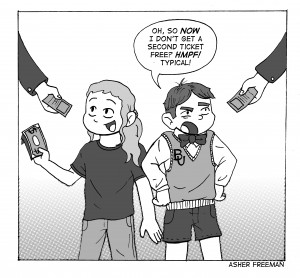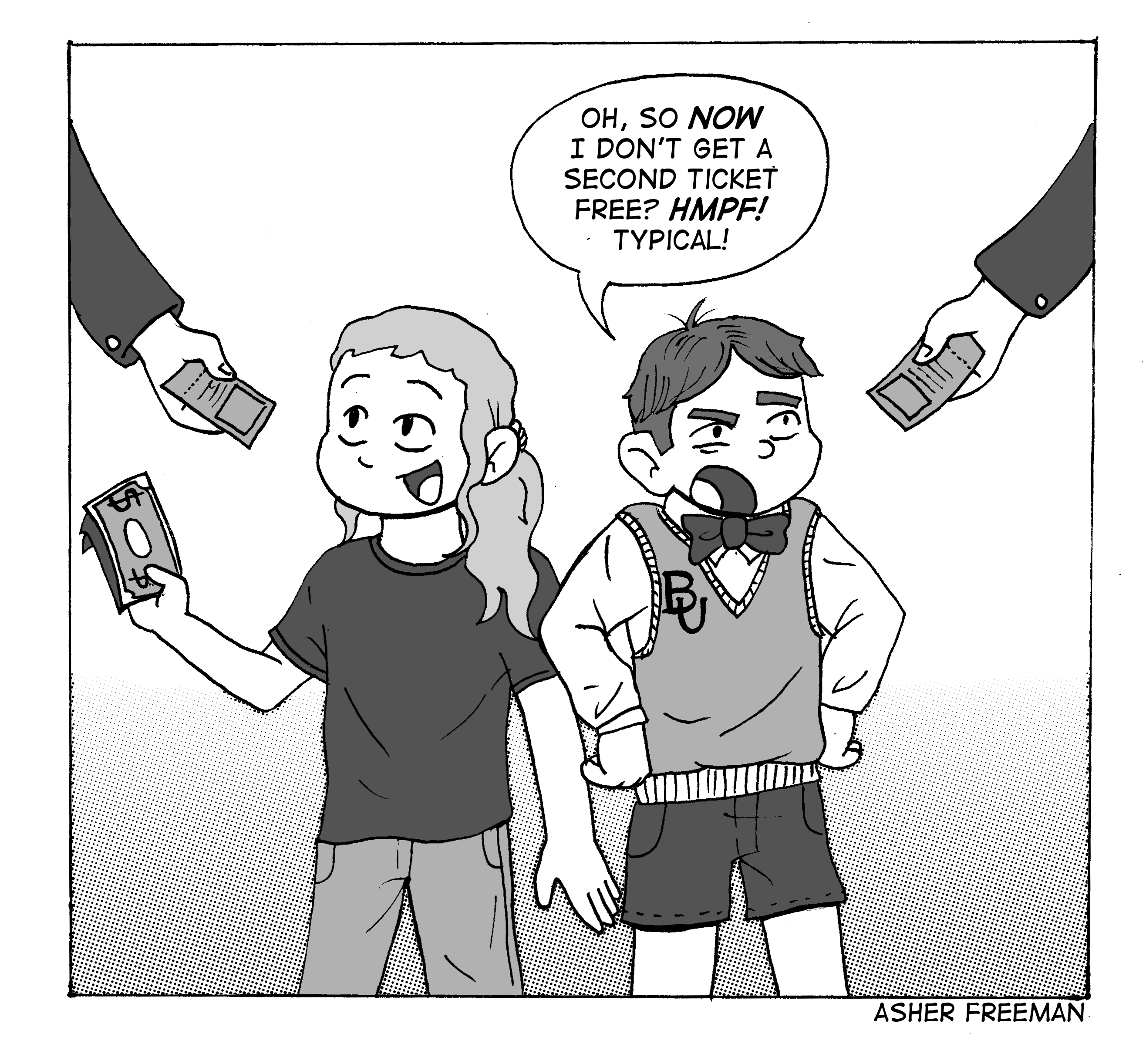 Baylor football is getting ready for the most anticipated season in the history of the program. The Bears are coming off their first Big 12 championship in program history, and anticipation is building for the opening of the $266 million McLane Stadium.
Baylor football is getting ready for the most anticipated season in the history of the program. The Bears are coming off their first Big 12 championship in program history, and anticipation is building for the opening of the $266 million McLane Stadium.
With the stadium set to open on Sunday and interest in Baylor football at an all-time high, Baylor has instituted many new ticketing policies for students. Rather than being distributed through the box office in the Bill Daniel Student Center, tickets will be distributed online six days before home games.
There will be 8,500 student tickets given out on game day; 5,200 are general admission, 2,800 are reserved for the Baylor Line and 500 will be overflow seats in the berm. There will be penalties if a student reserves a ticket and does not go, as well as if they try to gift or sell their ticket. There will also not be cheap visitor tickets available anymore.
The new Baylor ticketing procedures are a positive step by the university toward creating sustainable interest in the football program and ensuring the most representative student section at Baylor football games.
Student tickets for the student section are intended to be just that: for students. In the past, students have regularly gifted or sold their university-issued tickets. The athletic department’s fears came to a head last season when students began selling their student tickets for exorbitant profits.
Students are typically the rowdiest fans at football games, and it is in the interests of the athletic program to get as many students out as possible; that is why students are given tickets. Having student tickets used to bring in outside guests undermines the goals that the university hopes to accomplish by giving out these tickets.
A potential drawback of the plan could be that there will not be enough tickets distributed to meet student demand. According to Baylor athletic director Ian McCaw, about 10,000 student tickets were distributed for each of the Oklahoma and Texas games in 2013, and the Southern Methodist University game will likely draw even more with the biggest freshman class in history now on campus.
However, in 2013, Baylor football averaged 45,948 fans per game, almost 5,000 more than the 41,194 who bought tickets the year before. In Art Briles’ first season in 2008, only 34,378 people on average showed up to each game.
Students and alumni have not always expressed the fervor for Baylor football that they now possess. In the recent past, students had the ability to line up on game day itself and easily get a ticket. Statistically, it is unlikely that Baylor will not regress back to the mean at any point over the next 50 years.
Some have argued that getting rid of visitor tickets will make it increasingly difficult for recent alumni and family of students to get into games, which is true. However, that is just capitalism; there is no discount to attend the university if you are second generation. Many recent alumni will be priced out of games, but that is solely because the university could put someone in their seat that is willing to pay more.
The new rules will make getting friends and family into the stadium more difficult, but they are consistent with rules in other major college football stadiums across the country. Even though the tickets are technically paid for through student fees, no other school in the Big 12 includes student tickets in tuition, even though many schools are equally as competitive with tuition and cost of living.
Limiting the ability to distribute tickets is not making changes, but rather trying to enforce the rules that have been in place for years. If people find ways through the new system, Baylor’s response will not be to make the rules less enforceable. Instead, if this does not work, students should be prepared to pay for tickets sooner rather than later.






